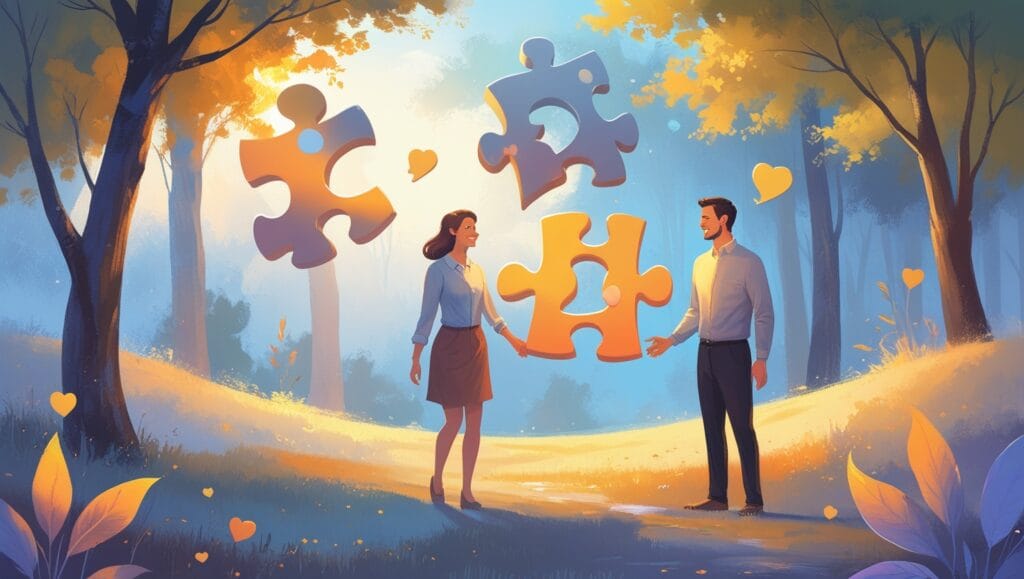9 Secrets to a Happier Marriage Through Counseling
Marriage can be a wonderful union, yet even the most in-love-of-a-couple-people would admit that along the way, some juggling needs to be done. From communication differences to major life transition issues, the strongest relationships require nurture and care. This is why fortunate counseling tools and techniques are deeply emotionally connecting and can resolve conflict. Not for those near the brink, it also helps and can strengthen healthier relationships.
This guide will answer frequently asked questions about how counseling promotes a happier, healthier marriage and offer practical insights to apply in your own relationship.
Whether you’re newly married, seeking to improve communication, or simply want to keep your relationship thriving, this post is packed with valuable advice tailored for couples and relationship advocates alike.
Why Seek Marriage Counseling?
Is Marriage Counseling Only for Troubled Marriages?
Absolutely not. While counseling can be an invaluable resource for couples dealing with grave challenges, such as infidelity, financial strain, or parenting disagreements, it’s equally valuable when things are going wonderfully in your relationship.
Think of therapy as preventive care. Just as a check-up can keep your body healthy, marriage counseling can help keep your relationship in good health. Couples seek therapy to improve communication, increase intimacy, or learn to manage minor conflicts before they become major ones.
How Can Counseling Benefit a Happy Couple?
Even happy marriages can get happier through counseling. Benefits include:
- Improved Communication: Counselors equip couples with techniques to express needs, understand each other better, and diffuse misunderstandings.
- Deepened Emotional Connection: Many sessions focus on fostering vulnerability and intimacy.
- Shared Goals: Working with a therapist can help align long-term goals, like parenting strategies or financial planning.
- Conflict-Resolution Skills: Every couple experiences minor disagreements, but therapy provides you with tools to resolve them effectively and respectfully.
1.Secrets to a Happier Marriage: Communication is Key When you feel like your conversations with your partner have become or, worse yet, haven’t occurred at all, you’re not alone. Poor communication is consistently shown as among the top reasons couples split up.
The counselor may suggest the use of different techniques in therapy, such as “active listening,” whereby one partner would repeat back what the other has said to make sure they feel heard. For example, instead of immediately offering solutions, stop and acknowledge your partner’s feelings.
- Know Your Love Languages

Dr. Gary Chapman’s concept of the 5 Love Languages-words of affirmation, acts of service, physical touch, quality time, and receiving gifts-has reformed the way couples show appreciation for one another. A very common exercise in counseling is identifying the primary love language with which each partner expresses love. If your love language is “quality time” but your partner keeps giving you gifts, that incongruent expression of love may leave both of you feeling unmet. Counseling bridges that gap.
- Learn to Manage Conflict Without Escalation
Conflict isn’t inherently bad–it’s how couples handle it that matters.
Marriage counselors help the couple recognize normal patterns of conflict, which have been referred to by psychologist Dr. John Gottman as the “Four Horsemen of the Apocalypse.” It includes criticism, contempt, defensiveness, and stonewalling. These toxic behaviors are replaced through therapy with constructive ones, such as taking breaks during heated arguments or expressing one’s needs by using “I” statements.
- Commit to Vulnerability
One of the most challenging yet rewarding areas of marriage counseling is to learn how to be vulnerable. Most couples enter therapy with emotional walls built around past misunderstandings or hurts.
The therapist guides the couple in opening up: sharing fears, addressing unmet needs, and expressing unspoken desires. Vulnerability can foster deeper connection and trust.
- Establish Rituals of Connection
Strengthening a marriage doesn’t have to involve just those great, sweeping romantic gestures; sometimes, it’s the little, consistent rituals that mean the most. And therapists often encourage these regular moments of connection, such as the following:
- A morning coffee date before heading out to work.
- “Date nights” where there are no cell phones allowed.
- Gratitude list-sharing at the end of every day.
These remind one to make time for the partnership every single day.
- Follow Shared and Separate Interests
One does not get married to fulfill all of one’s emotional needs; individual identities should exist in a marriage. Yet, shared interests are just as vital in keeping the union together.
Counseling can also help you find hobbies or projects both of you will be attuned to, while at the same time encouraging healthy independence.
- Forgive and Heal
These will still happen-no matter how perfect the relationship. This is not perfection, but forgiveness.
The therapist is an independent professional to guide the couple to process their hurts, receive the apologies due to them, and work at being genuinely forgiving and not keeping score.
- Focus on Intimacy Beyond the Bedroom
Physical intimacy is important, but emotional intimacy is foundational in any marriage. The counselors encourage the couples to try couples journaling, giving a compliment each day, or even holding hands more often.
These activities instill a sense of closeness that begins to permeate all other areas of your life.

- Invest in Lifelong Growth
Marriage isn’t static; it evolves along with you and your partner. The best marriages commit to growth-both together as individuals.
Therapy underlines opportunities in shared growth, whether it is about navigating parenthood or adjusting to retirement.
How to Find the Right Counselor
The right professional can make all the difference in your success with therapy. Look for:
- Experience in working with couples or training in specific areas such as the Gottman Method Couples counseling.
- Compatibility-your feelings and comfort and that of your spouse with the therapist.
- Location-in person or online, via platforms such as Regain and Better Help.
Do not hesitate to interview therapists or seek a trial session prior to making any long-term commitments.
Counseling Isn’t a One-Time Fix
Marriage counseling is not some quick fix for temporary gains; rather, it builds the lifelong foundation for happiness. Going to a therapist will help couples learn to communicate and, thus, compromise and grow closer together, therefore letting the relationship improve with time.
No marriage is perfect, but with ongoing effort and support, you can unlock the secrets to making it as fulfilling as possible. Seeking professional help is not a sign of weakness; it’s a decision to prioritize happiness and growth.
If you’re ready to strengthen your bond and want guidance from a professional, find a counselor or sign up for an online therapy session today. Your relationship deserves it.

